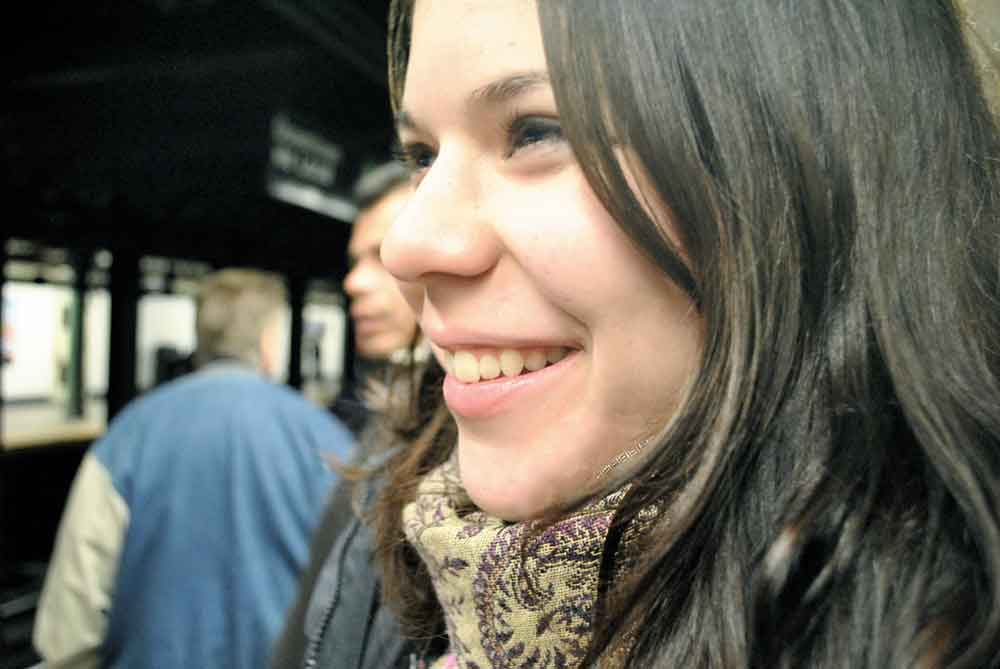What prompted you to pursue a graduate degree?
I was an undergraduate at Sarah Lawrence and during my junior year I decided to take a women's history course called Revolutionary Women. That year I was extremely interested in developing countries and global health, particularly for women and children, and I started working on this project about non-governmental agencies training midwives in Afghanistan. Through that experience, my professor Priscilla Murolo encouraged me to look into the graduate program for Health Advocacy and after meeting with the director and learning that I could combine my senior year with my first year of graduate school, I decided to apply.
How did graduate school fit into your life at the time?
My experience in the program was unique because as a Sarah Lawrence undergraduate, I was already integrated in the community. I already had an apartment, part time job, and a network of friends to support me through the process and that was extremely helpful. In addition, my entire reason for being in New York was to go to school and learn everything I could by utilizing the resources that were available to me there, so just by being extremely present and engaged with the opportunities that surrounded me at Sarah Lawrence, I was able to successfully fit the Health Advocacy program into my life.
Why did you choose Sarah Lawrence College for your graduate studies?
I chose the Health Advocacy program mainly because of its social work and access approach to health, but also because of the supportive women that I talked with while I was deciding whether or not I could do, as well as afford, the program. Mostly, it was Crystal Greene, the program director's amazing assistant, who encouraged me to stay at Sarah Lawrence for an extra year and helped me navigate the tricky waters of integrating this program into a five-year model with my undergraduate degree. There's no other school where I could have done that.
What role did the Sarah Lawrence faculty play in your time here?
My favorite part of Sarah Lawrence was the relationships that I developed with some of the faculty and the ways they inspired and encouraged me to think deeper and harder. As a graduate student, these relationships shifted into something a little different than they were as an undergraduate, but there were still moments and relationships, mostly within the courses with conferences, that completely changed the way I approached my work and the world. For example, there were many moments like that with Rebecca Johnson in History Healthcare and I am very thankful for experiences like those within the program.
What experience as a Health Advocacy student had the greatest impact on you?
I think my capstone project on building resilience in grandparents raising their grandchildren was my most memorable experience because of the total integration of my academic life at Sarah Lawrence with my personal life in my hometown. In no way was it easy to try and merge the new person I was growing into and becoming at school with the person everyone I grew up with knew me to be, and it was complicated to shift my role as a child into an adult into a facilitator, but it was an incredibly valuable experience that helped prepare me to move back home after graduation and come full circle with my time at school, my ever-evolving relationships in the many areas of my life, and my identity and ever-shifting role within various communities.
What advice can you offer to prospective graduate students?
When I started this program, I never realized how important and incredibly valuable my relationships with the other students would be. As much as the coursework, fieldwork, and faculty shaped my learning experiences in the Health Advocacy program, my relationships and interaction with the other students also challenged, inspired, encouraged, and molded me. As a graduate, that community is what I miss most about the program and I would recommend that prospective students embrace those relationships fully and wholeheartedly during their time in the program.
What impact did the proximity of New York City have on your experience?
Being so close to New York City was incredibly helpful for my fieldwork, mostly because of my interest in global health. Sarah Lawrence College is really in a great location in Bronxville because there can be balance of a quiet learning community that keeps you easily connected to one of the most diverse and exciting cities on the east coast that provides students with so many learning, living, and social options being only a train ride away.
What are you up to now?
Currently, I am running a before and after care program at an early childhood learning center full time and working at a yoga studio part time while I wait to leave for the Peace Corps in January 2016 as a community health volunteer. This program has helped me shape my interests into two things that I know I want to spend the rest of my life pursuing—community health and women's economic empowerment, and it was incredibly inspiring and a privilege to be part of it.
